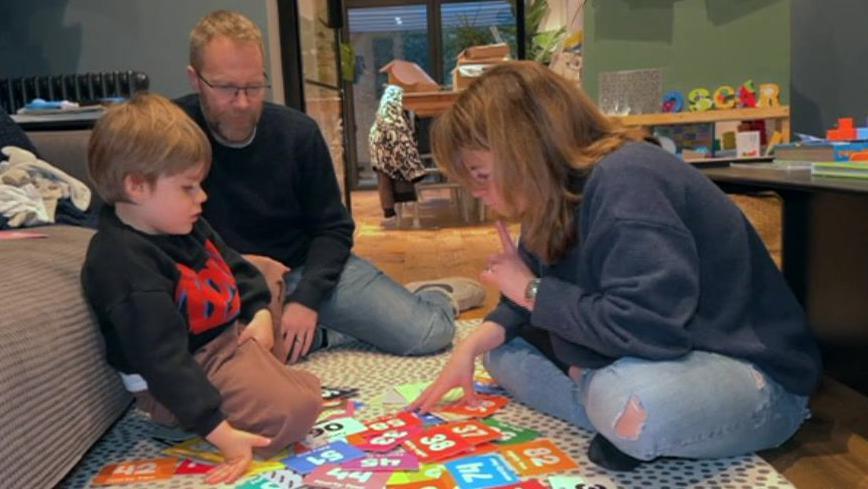Special needs outcomes different across Sussex

West Sussex County Council says it will have a total education overspend of £224 million by March 2026
- Published
The length of time a child with special educational needs waits to be assessed to get the correct schooling depends on which area of Sussex they live in.
To access specialist provision, a child must have an education, health and care plan, known as an EHCP.
Figures show East Sussex County Council was delivering 87% of its EHCPs within the 20 weeks deadline and Brighton and Hove was completing 80.5% in 2023.
But in West Sussex, just 3.6% of ECHPs were being completed within 20 weeks, leaving some families facing many, many months of uncertainty.
After a critical Ofsted report, the council invested £20 million in a dedicated Send improvement plan last March, but has since said a shortage of educational psychologists to assess children is continuing to cause delays.
The number of EHCPs in West Sussex has risen from 3,423 in 2015 to 8,802 at the end of September 2024, with that number continuing to rise.
Officers say children's needs are becoming more complex, with one-to-one support increasingly necessary.
Jacquie Russell, cabinet member for children, young people, learning and skills said: "This plan is supported by targeted resources aimed at enhancing the support and opportunities available for children with Send across West Sussex and is already resulting in areas of improvement."
Specialist schools 'expensive'
Once a child has an EHCP, they can face another wait for a specialist school place to be available and may face long journeys to access the provision they need.
Keith Glazier, leader of East Sussex County Council said the rising costs associated with supporting Send children and child and adult social care were going "through the roof".
Problems in special educational needs and disabilities (Send) provision exist across the country.
This week a Public Accounts Committee report called on the government to act urgently to stop a "lost generation" of children leaving school without ever getting the support they need.
West Sussex County Council contributed to the report, warning that "a significant proportion" of authorities will go bankrupt if Send spending is not managed better by the government.
It said a focus on creating specialist schools over the past decade had been very expensive and lead to a high-needs budget deficit of £59 million this year.
The government says it is investing £1 billion into Send, and an extra £740 million is going to councils to create more specialist places in mainstream schools.
The Department for Education's schools minister, Catherine McKinnell, said: "The system we've inherited has been failing families with Send children for far too long – this is unacceptable and that's why we set out our plan for change to ensure no child is left behind.
Follow BBC Sussex on Facebook, external, X, external, and Instagram, external. Send your story ideas to southeasttoday@bbc.co.uk, external or WhatsApp us on 08081 002250.
- Published13 March 2024

- Published1 March 2024

- Published26 November 2024

- Published28 November 2023

- Published18 December 2024
